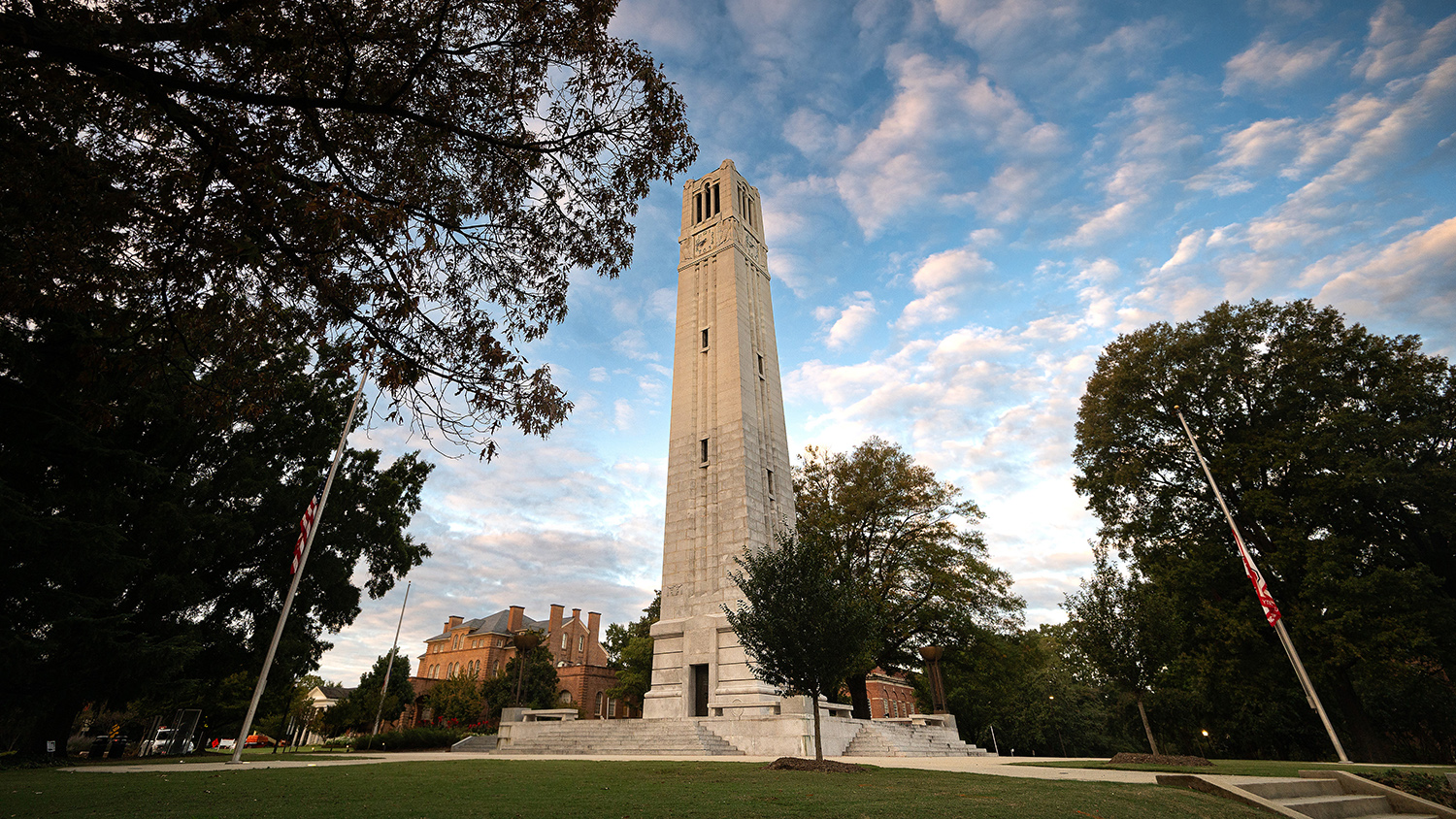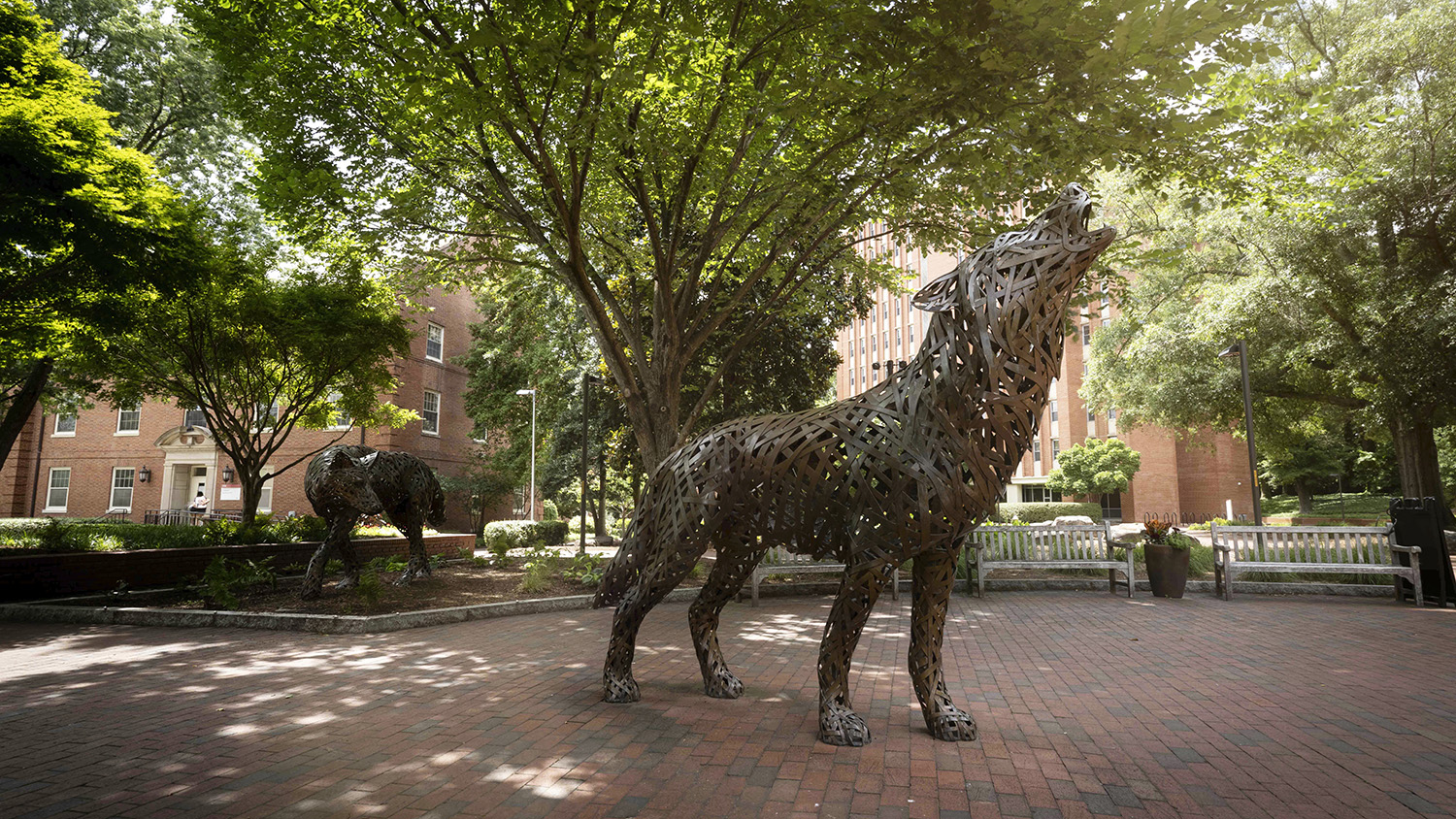NC State’s Office of Assessment and Accreditation ensures the quality of an NC State education for all undergraduate and graduate students. In 2024, the office will guide the university through the Southern Association of Colleges and Schools Commission on Colleges (SACSCOC) reaffirmation of accreditation process. This process will ensure NC State’s ability to continue to offer accredited degree and non-degree programs to all students.
Recently we spoke with Fashaad Crawford, vice provost for Assessment and Accreditation and co-chair of the 2024 SACSCOC Reaffirmation Steering Committee, who updated us on 2024 reaffirmation milestones. We also spoke with interim director of NC State’s Quality Enhancement Plan (QEP), Holly Hurlburt, on her role in this process and why the QEP is important to the university.
2024 Reaffirmation Updates
NC State’s Self-study and Quality Enhancement Plan
NC State successfully submitted our compliance certification/self-study (Unity ID required to access the website) to SACSCOC in September. The self-study is currently being evaluated by an off-site peer review committee, and the university will receive the findings by November 17. If needed, responses to these findings will be due to SACSCOC in late January 2024. NC State’s next Quality Enhancement Plan (QEP), Packways: Learning by Doing, is also due to SACSCOC at that time. This QEP, which focuses on high-impact experiences, is part of a universitywide project focused on enhancing student learning and student success.
To further support progress toward reaffirmation, Holly Hurlburt, associate dean of University College and a professor in the Department of History, has been appointed as interim director of the QEP. In this role, she will work closely with the Office of Assessment and Accreditation (OAA) and other campus constituencies to draft the QEP by the January submission date.
2024 SACSCOC Site Visits
Next, a team of SACSCOC peer reviewers will visit two of NC State’s off-campus instructional sites (OCIS). In February, they will visit the Craven Community College, Havelock campus, which offers the Bachelor of Science in Engineering. In March, they will visit Central Piedmont Community College, which offers the Ed.D. in community college leadership, prior to the visit to NC State’s campus.
To evaluate the off-site review team’s findings, along with an evaluation of the SACSCOC federal requirements and standards of accreditation, a SACSCOC on-site team will visit campus on March 25-28, 2024. During this visit, the SACSCOC team will meet with various university stakeholders, including the UNC Board of Governors, NC State Board of Trustees, Chancellor Woodson, Provost Arden, faculty, staff and students.
Next Steps
OAA will meet with various university stakeholders and leadership to prepare for the follow-up reports (as needed), the upcoming OCIS visits, and the on-site review team. OAA looks forward to the continued participation of the university community in the reaffirmation process and the development and implementation of NC State’s next QEP.
For questions about the reaffirmation process, please contact assessment-and-accreditation@ncsu.edu.
Learning More with Interim QEP Director Holly Hurlburt

How long have you been at NC State, and what roles have you been in since joining the university? How did you get involved with the development of NC State’s latest QEP?
I came to NC State from Southern Illinois University Carbondale in July 2019. There I was a professor of history and the former director of the Chancellor’s Scholars Program. Here at NC State I am the associate dean of academic enrichment programs in University College, the academic programs arm of the Division of Academic and Student Affairs (DASA). I oversee the University Honors Program, the First Year Inquiry Program, the Office of Undergraduate Research (OUR) and the University Fellowships office. It was my work with these teams, and especially OUR, that led me to the QEP. OUR wondered who got involved with undergraduate research, who didn’t, and why. In 2021, I created a team of folks from DASA and across campus interested in the same questions: how do students access high impact experiences, what are barriers to participation, do they understand their value, and how can we help all NC State undergraduates get the most out of these often transformational experiences? We attended a High Impact Practices Workshop sponsored by the Association of American Colleges and Universities that summer, and decided to submit a QEP proposal thereafter.
How will your experience as associate dean of University College and a professor in the Department of History shape your work with the QEP?
The fact that I oversee all universitywide programs has meant I already had the necessary experience working collaboratively across campus to help promote those programs and unearth new partnerships. It also meant I knew a fair number of people who were also interested in elevating high impact experiences on our campus. Among other things, my career as a historian has helped me grasp how important context and clarity are, and how important it is to understand ideas and best practices through a good solid literature review!
What are your responsibilities as interim director of the QEP?
Right now I have three main duties: working with the Office of Assessment and Accreditation to craft our official QEP proposal — this is the document that explains our plan to SACSCOC and will guide their inquiry during the on-site visit in March 2024; working with a team of 20 or so faculty, staff and students from across campus to develop an implementation plan we will begin to put into practice in the spring of 2024; and working with that team to raise awareness, answer questions and create consensus around our QEP across campus.
In what ways will this QEP help students experience greater engagement in high-impact experiences and greater levels of academic and personal success?
First, we want to combat impostor syndrome in our students by normalizing practices like research, internships – these are not extras but integral parts of learning at NC State and they are open and good for everyone! Impostor syndrome isn’t the only barrier to participation — time, money, and understanding value also matter, and we want to learn from students how we can help overcome those. We want to expand the construct of high impact to include things like on campus employment, since almost 75% of NC State students work at some point in their collegiate career. Next, we want to work towards more equitable access of high-impact experiences and advising about them early in student careers. We don’t want students to do more necessarily, but we do want them to engage in critical reflection as they learn experientially — What am I doing? What am I learning? How does it connect to other learning opportunities? And we want to work with other campus partners to determine the best way students can demonstrate the competencies they are gaining from these experiences — things like problem solving, team work, critical thinking — that will help them in their lives and careers.
- Categories:



